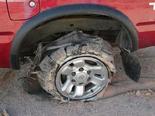In the November, 2010 election, Republicans gained additional seats in the Florida House and Senate, making their previous solid majorities even stronger. Combined with the election of pro-big business Republican Governor Rick Scott, individuals should expect to see their rights at seeking redress from large corporations dramatically curtailed.
One of the first orders of business for the Republican legislature will be to eliminate the “enhanced injury” doctrine. As I discussed in a previous blog, the enhanced injury doctrine is a principle of law that allows civil courts to hold corporations accountable for damages caused by their negligence that exceed the damages due to the initial fault. A clear and simple example of the principle in application comes from the seminal case on the doctrine, D’Amario v. Ford Motor Company, 806 So.2d 424 (Fla. 2001). D’Amario involved a minor passenger in a vehicle that struck a tree. Following the impact, a fire began that ended in an explosion, causing the minor to lose three limbs and suffer burns to much of his body. The minor and his mother sued Ford alleging that a defective relay switch in the automobile caused the fire. They alleged that but for the defective switch, the fire would not have started and the minor’s injuries would have been limited to those from impacting the tree. Consistent with the enhanced injury doctrine, they limited their claim for damages to those caused by the fire. The case went to trial and was ultimately appealed to the Florida Supreme Court. The Supreme Court held Ford Motor Company responsible for the enhanced injuries, thus establishing the doctrine.
Continue reading
 Florida Injury Attorney Blawg
Florida Injury Attorney Blawg


